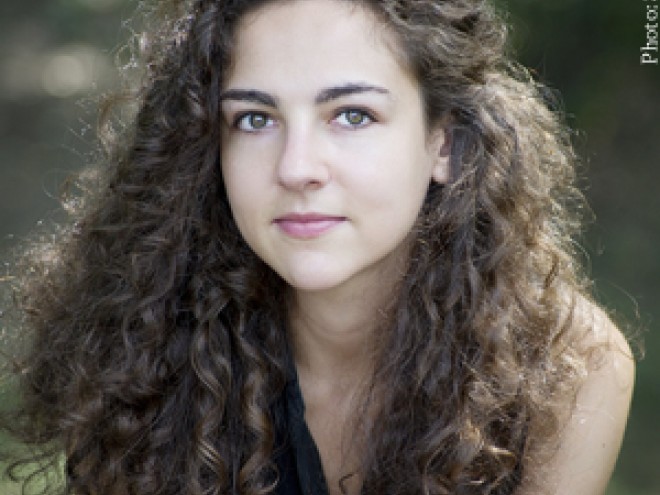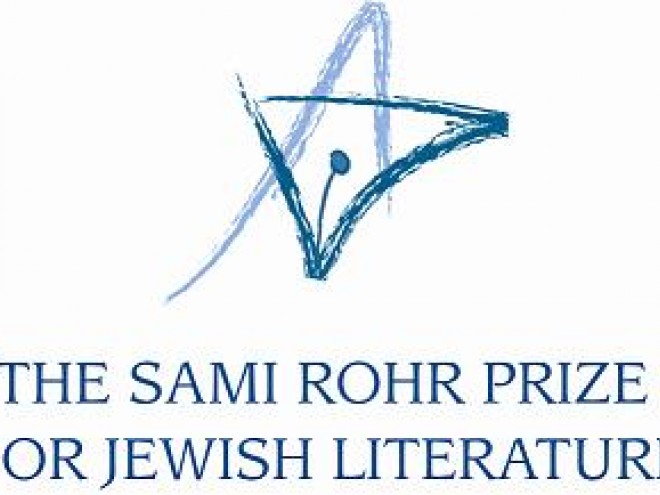Posted by Naomi Firestone-Teeter
 In January, we announced the five finalists for this year’s Sami Rohr Prize for Jewish Literature. The winner of this prize receives $100,000 and the runner-up receives $25,000. Not too bad, eh? We’ll be announcing the winner later this month! In the meantime, we asked our finalists a few questions about their process, their audience, and the current books on their nightstand. First up is Abigail Green, author of Moses Montefiore: Jewish Liberator, Imperial Hero. The Rohr judges praised Moses Montefiore as “[a] monumental biography of Montefiore [that] provides a fascinating and comprehensive glimpse into the life and times of an amazing man.” Below, Abigail explains her personal connection to Montefiore and her role as a historian and a writer:
In January, we announced the five finalists for this year’s Sami Rohr Prize for Jewish Literature. The winner of this prize receives $100,000 and the runner-up receives $25,000. Not too bad, eh? We’ll be announcing the winner later this month! In the meantime, we asked our finalists a few questions about their process, their audience, and the current books on their nightstand. First up is Abigail Green, author of Moses Montefiore: Jewish Liberator, Imperial Hero. The Rohr judges praised Moses Montefiore as “[a] monumental biography of Montefiore [that] provides a fascinating and comprehensive glimpse into the life and times of an amazing man.” Below, Abigail explains her personal connection to Montefiore and her role as a historian and a writer:
What are some of the most challenging things about writing non-fiction?
The things I find challenging are: re-reading my research notes before I get started because it’s important to do it properly but it can be really boring; wearing my learning lightly because I’m writing for different audiences at the same time; and cutting, cutting, cutting the text because anything shorter is almost by definition better.
What or who has been your inspiration for writing non-fiction?
The past.
Who is your intended audience?
It depends on the book. Montefiore is quite an eclectic book so it was meant for all sorts: Jewish readers, general readers, biography readers, amateur and professional historians. My mother was born a Montefiore and my husband’s father grew up in Yemin Moshe in Jerusalem, when it was still a run-down neighbourhood. The original inhabitants were all evicted during the War of Independence to protect them from enemy gunfire. So this one’s for my family too.
Are you working on anything new right now?
Thinking, not writing as yet.
What are you reading now?
In a Dark Wood Wandering by Hella S. Haasse. It’s a Dutch historical novel set in fourteenth century France, written in the 1950s. And Liberalism, a Counter-History, by Domenico Losurdo.
When did you decide to be a writer? Where were you?
All good historians should also think of themselves as writers. I’m British and my interest in history was sparked by Queen Elizabeth II’s Silver Jubilee in 1977. I read Our Island Story — an early twentieth century history book for British children that is so wildly outdated that it recently came back into fashion. And I spent hours in a second-hand bookshop selling dusty historical novels opposite a medieval castle near where my grandparents lived.
What is the mountaintop for you — how do you define success?
When a reviewer described my book as ‘one of the essential works on modern Jewish history.’ No historian could ask for more.
How do you write — what is your private modus operandi? What talismans, rituals, props do you use to assist you?
Once I’m underway with something, I can write pretty much anywhere. I gave birth to our first child when I was half way through writing Montefiore, so I wrote a lot of it at night.
What do you want readers to get out of your book?
I’d like them to think about the nineteenth century – and particularly the Jewish nineteenth century — in new ways.
Abigail Green is Tutor and Fellow in History at Brasenose College, University of Oxford. She is nominated for Moses Montefiore: Jewish Liberator, Imperial Hero, which was a National Jewish Book Award Finalist, a Times Literary Supplement Book of the Year 2010 and a New Republic Best Book of 2010. Her first book Fatherlands: State-Building and Nationhood in Nineteenth Century Germany, was shortlisted in Das Historisches Buch 2002. She lives in Oxford, England.
Originally from Lancaster, Pennsylvania, Naomi is the CEO of Jewish Book Council. She graduated from Emory University with degrees in English and Art History and, in addition, studied at University College London. Prior to her role as executive director and now CEO, Naomi served as the founding editor of the JBC website and blog and managing editor of Jewish Book World. In addition, she has overseen JBC’s digital initiatives, and also developed the JBC’s Visiting Scribe series and Unpacking the Book: Jewish Writers in Conversation.


